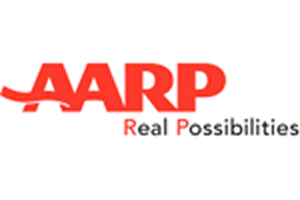800.696.9529
New York Credit Repair
If you fail to pay your bills, there are several serious consequences. Your creditors and debt collectors will call you– constantly. If your creditors conclude that you have no intention to willing pay your debt, your creditor could take you to court and get a judgment against you. A judgment may result in a wage garnishment. Furthermore, failure to make timely mortgage payments may result in foreclosure. In other words you could lose your house, condo, coop, or townhouse. However, before your financial situation becomes so dire that your home falls into foreclosure, there are several debt relief options that you could take advantage of to help you improve your financial situation so that you do not lose your home. For example, you could get a debt consolidation loan, you could negotiate a debt settlement with some of your creditors, or you could file for chapter 7 bankruptcy or chapter 13 bankruptcy. If you have fallen behind on your mortgage payments, it is critical that you immediately contact an experienced New York Credit Repair Lawyer who will explain to your options for avoiding foreclosure and who will also explain to you the foreclosure process.
Foreclosure procedure
Notice of foreclosure. In New York under N.Y. Real Prop. Acts Law section 1301 before a foreclosing party can foreclose on your property it must first file a lawsuit against you. The foreclosing party is typically the bank from which you secured the mortgage on the property. The bank must give you at least 90 days notice before filing the foreclosure complaint. You will have 20-30 days to respond to the complaint.
If you do not respond to the notice of foreclosure, then the judge may issue the bank a default judgment against you. If, however, you do file an answer disputing the bank’s case, then your case will likely proceed to trial. If you lose, then the court will issue foreclosure judgment.
Settlement conference. New York law also requires that you meet with the foreclosing party to try to work out a settlement that would avoid foreclosure. If you are unable to work out a settlement, the foreclosure case will proceed.
Restatement of the loan. At any time prior to the final foreclosure judgment you will have the option of restating your mortgage. Restatement of your mortgage loan involves making up all of the missed payments, plus interest and fees.
Deficiency judgment. If a foreclosure judgment is issued against you, the bank will sell the house. However, it is possible that the sale price will be less than the amount that you owe the bank. The difference is referred to as a deficiency. If there is a deficiency under N.Y. Real Prop. Act. Law §1371, in New York, the bank may obtain a deficiency judgment against you. The bank must request a deficiency judgment within 90 days after the foreclosure sale. In addition, the deficiency will be limited to the fair market value of the property as determined by the court.
If you are at risk of losing your home to foreclosure, it is imperative that you immediately contact an experienced New York Foreclosure attorney who will work hard to fight the foreclosure and help you explore options to help you with you debt problems. The staff at Stephen Bilkis & Associates, PLLC has extensive experience helping clients avoid garnishments, eliminate debt, responding to creditors’ claims, filing for chapter 7 and chapter 13 bankruptcy, and dealing with out issues related to debt relief. Contact us at 800.696.9529 to schedule a free, no obligation consultation regarding your debt issues.












